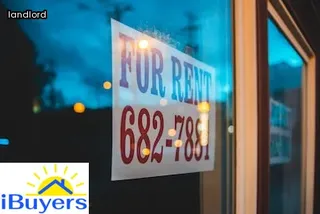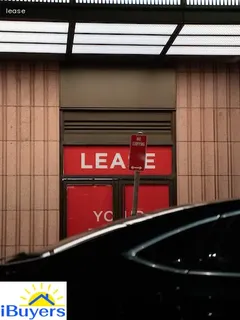It is important for both landlords and tenants to understand the difference between legal and illegal evictions in Kentucky. Eviction proceedings in Kentucky must be handled in accordance with the Kentucky Revised Statutes, or KRS.
It is illegal for a landlord to evict a tenant without first providing written notice of their intention to evict them, as well as filing an eviction lawsuit with the court. Legal evictions must follow specific procedures, such as giving proper notice of eviction, filing a complaint and summons with the court, attending a hearing before the judge, and obtaining an eviction order from the court.
Illegal evictions include changing locks on a tenant's door, turning off utilities, removing doors or windows, or removing personal items from the premises. Tenants have certain rights when facing an eviction in Kentucky including the right to receive written notice of their impending eviction and the right to dispute it by appearing in court and presenting evidence at trial.
Understanding these rules and rights can help ensure that landlords and tenants are aware of their obligations during the Kentucky eviction process.

The Kentucky eviction process can be complex and time-consuming, so it's important to have a comprehensive understanding of the rules and rights of both landlords and tenants. To help, here is a step-by-step guide to the Kentucky eviction process.
First, landlords must serve an eviction notice to the tenant via certified mail or in person. This document will typically specify a certain number of days for the tenant to vacate the premises; if this does not happen, the landlord may then file an action in District Court seeking possession of the property.
The court will then issue a summons requiring the tenant to answer or appear within fourteen days. After that point, if no answer is given or if the tenant fails to appear, then a default judgment may be entered for possession of the property in favor of the landlord.
Next, if necessary, an execution may be issued by the court allowing law enforcement officers to evict any occupants from the premises. Finally, if damages are owed by either party as part of their agreement, those claims may also be decided during this process.
Eviction in Kentucky can have a considerable financial implication for both landlords and tenants. For landlords, the cost of the eviction process itself can be expensive, as they are responsible for hiring an attorney to prepare and serve the eviction notice.
Furthermore, if a tenant fails to pay rent or otherwise falls behind on payments due to their landlord, the landlord may not be able to recoup these funds during the course of the eviction proceedings. Tenants also face financial hardship with eviction in Kentucky; if a tenant is evicted from their rental unit, they may have difficulty finding new housing due to an eviction being listed on their credit report which can make it difficult for them to secure another rental unit.
Furthermore, tenants may incur additional costs such as late fees or attorney fees if they fail to comply with an order from the court during an eviction proceeding. Therefore, understanding all aspects of the Kentucky Eviction Process is essential in order to avoid any potential financial implications.

Eviction in Kentucky is a complex process that can take anywhere from several weeks to several months. It is important for both landlords and tenants to understand their rights and the laws surrounding eviction in Kentucky.
Common questions people have about eviction include how long does it take, what is the legal process, when must the tenant move out, what are the landlord’s rights and responsibilities, and what happens if the tenant doesn’t move out? The length of time involved with an eviction depends on factors including whether or not the tenant has filed an appeal, ways to pay back rent or other fees owed, and the availability of local court personnel. Landlords must provide written notice to tenants before filing for eviction.
This notice needs to be served according to state law and contain certain information. Tenants generally have up to 14 days to either pay overdue rent or vacate the property before a landlord can file an eviction lawsuit.
If a tenant doesn’t leave within this timeframe, they can be fined or even taken into custody by law enforcement officers. If a landlord wins an eviction case, they may seek reimbursement for court costs as well as fees for late rent payments or damages done to their property.
Tenants who remain on rental premises after being evicted may be subject to criminal charges as well as additional financial penalties.
When it comes to eviction processes, the laws and regulations vary significantly from state to state. Kentucky is no exception.
In Kentucky, landlords have the legal right to evict tenants for various reasons. The length of the process depends on several factors, such as whether a tenant is withholding rent or has caused damage to property.
Comparing the process in Kentucky with other states can help both landlords and tenants better understand their rights and responsibilities while navigating the process. In some states, like Colorado, a tenant must be given 20 days’ notice before eviction proceedings can begin.
North Carolina requires that a landlord provide a written notice that gives the tenant 10 days to vacate before an action for possession can be taken in court. In comparison, Kentucky does not require any specific amount of notice before filing an eviction lawsuit; however, three-day notices are generally used.
Additionally, after an eviction complaint is filed in court by a landlord in Kentucky, tenants typically have 10 days to respond with an answer or other responsive pleading before the case proceeds towards trial. It's important for landlords and tenants alike to be aware of all of these differences when comparing different states' eviction processes so that they are prepared for the time frame and necessary procedures involved in each.

The Kentucky eviction process is a complicated one that includes several forms and procedures. Landlords must proceed with caution to ensure they are in compliance with the law, and tenants should also be aware of their rights throughout the process.
The first step of an eviction is for the landlord to provide written notice to the tenant of their intention to evict. This notice must include information such as specifics on why the tenant is being evicted, when they must vacate the premises, and a deadline for them to dispute the reasons given in writing.
If the tenant fails to comply with this notice, then the landlord can begin formal eviction proceedings. This involves filing a complaint with the court, which will require both parties to appear before a judge.
The judge will ultimately decide whether or not an eviction is necessary based on evidence presented by both sides. Depending on how quickly all forms are completed, it may take anywhere from two days up to three weeks for a verdict to be reached.
It's important that landlords and tenants are aware of all laws and regulations pertaining to evictions within Kentucky so they can navigate this process as smoothly as possible.
When issuing a notice for termination with cause, Kentucky landlords are required to provide tenants with certain information about their rights and responsibilities. The notice must include the reason for the termination of the lease agreement, such as breach of contract or failure to pay rent.
It must also explain any other conditions that led to the eviction and provide details on how tenants can cure their breach. In addition, it must state the amount of time tenants have to cure their breach, which is typically 14 days in Kentucky.
Furthermore, the notice must inform tenants of their right to a hearing before an impartial court officer within 10 days if they choose to contest the eviction. Lastly, it must include a statement informing tenants that they have a right to remain in possession until judgment is entered against them if they fail to appear at the hearing or fail to comply with any orders issued by the court.

When a landlord is terminating a tenant's lease without cause, they must provide the tenant with written notice. This notice must include the amount of time that the tenant has to vacate the premises and the date by which they are required to leave.
It should also provide information on what happens if the tenant does not move out within the specified timeframe, such as when a court-ordered eviction process will begin. The notice should state that tenants have rights to challenge an eviction in court and that they may be able to remain in their home until a judge rules on their case.
It should also alert tenants about any additional notices or papers they may receive from the court system if their landlord files an eviction lawsuit. Lastly, it is important for landlords to ensure that all paperwork related to an eviction is accurate and up-to-date so that any potential legal proceedings do not become more difficult or complicated than necessary.
Potential tenant defenses against an eviction are available in Kentucky and can be used to challenge the eviction process. When a landlord attempts to evict a tenant, it is important for the tenant to understand their rights and how long the eviction process can take.
There are several strategies tenants can use to defend themselves during an eviction, such as raising legal challenges or filing a counterclaim. Tenants in Kentucky should also be aware of their state's laws, which may provide additional protections.
For example, tenants may be able to negotiate with landlords on certain terms or enter into mediation with them prior to the court proceedings. Additionally, tenants may have access to public benefits that have been set up specifically for those facing financial hardship due to an eviction.
It is important for both landlords and tenants to understand the rules and rights associated with evictions in order to avoid any potential disputes down the line.

The Kentucky eviction process can be a confusing and frustrating experience for both landlords and tenants. It is important to understand the basic rights and responsibilities of both parties during the removal of a tenant in order to ensure that the process runs smoothly.
Landlords have a legal right to remove tenants who fail to pay rent, breach the lease agreement or cause damage to the property. Tenants, on the other hand, have certain rights that must be respected, such as being given proper notice before eviction and having sufficient time to contest it.
The eviction process typically begins with a Notice of Eviction from the landlord to the tenant. This document serves as an official warning that they are in violation of their rental agreement and must take action within a given time frame, usually five days.
If not complied with, the landlord may proceed with filing an Unlawful Detainer lawsuit in court where a judge will ultimately decide whether or not to evict the tenant. Depending on how quickly both parties respond, this process can take anywhere from three weeks up to several months.
It is essential for both landlords and tenants alike to familiarize themselves with their rights and responsibilities throughout this process so that it can be concluded in an efficient and lawful manner.
Evictions in Kentucky are governed by a set of rules that must be followed by both landlords and tenants. Understanding the reasons behind these regulations is essential for both parties in order to ensure their rights are protected during the eviction process.
Factors such as tenant-landlord relationships, housing laws, and local regulations all play an important role in determining the length of time it takes for an eviction to occur. It is important for landlords to understand that evictions can take up to several months due to the complicated legal hoops that must be jumped through.
In some cases, the tenant may have rights to challenge or appeal the eviction notice if they believe it was issued unfairly or without cause. Having knowledge of applicable laws can help make sure that landlords adhere to proper procedures and tenants know their rights throughout the process.

When it comes to understanding the Kentucky eviction process, landlords and tenants need to be aware of the laws and their rights. Knowing when to seek professional advice is key in navigating through the complicated process.
If a landlord or tenant feels that they need legal assistance or representation during an eviction hearing, it is important to contact a landlord-tenant lawyer as soon as possible. A landlord-tenant lawyer can help clarify any confusion about the laws and regulations related to evictions and ensure that everyone’s rights are being upheld.
This type of attorney will have knowledge of the local court procedures and provide advice on how best to proceed with an eviction case. Landlords and tenants should understand that seeking legal assistance can help protect their interests throughout the entire eviction process.
When it comes to understanding the rights and rules of landlords and tenants in the state of Kentucky, it is important to have qualified legal representation. But how does one find a reliable lawyer for eviction proceedings? Our directory provides an easy and efficient way to locate the best lawyers in your area who specialize in landlord-tenant law.
By searching through our directory, you can easily find experienced attorneys with the knowledge and expertise needed to handle your case. Our directory also includes ratings from previous clients who have used these lawyers’ services, so you can make a more informed decision.
With this convenient tool, you can quickly determine which lawyer is best suited for your needs.

Eviction is a legal process by which a tenant is forced to leave a property due to non-payment of rent, damage to the property, or other breach of their lease agreement. A landlord initiates the eviction process by issuing an Eviction Notice, which informs the tenant that they must either remedy the issue or vacate the premises within a set period of time.
If the tenant does not comply with the terms of the Eviction Notice, then the landlord can proceed with filing an eviction lawsuit in court. The Judge will review all evidence presented in order to make a decision on whether or not to grant an Order of Possession.
This Order allows for an enforcement officer to put possession back in the hands of the landlord and remove any occupants who do not have a right to stay on the property. Depending on several factors such as where you live and how long it takes for your case to reach trial, evictions may take anywhere from just a few days up to several weeks or even months in some cases.
It is important for both landlords and tenants in Kentucky to understand their rights and responsibilities under state law when it comes to eviction proceedings so they can ensure their interests are being protected throughout this sometimes lengthy process.
The eviction process in Kentucky can be a lengthy one, and it is important for both landlords and tenants to understand their rights and the rules of the process. Generally, an eviction can take anywhere from two weeks to several months depending on the circumstances of the case.
The first step in the eviction process begins with a written notice from the landlord that informs the tenant of their breach or non-payment of rent. If the tenant does not respond to this notice or pay their rent within the specified period, then they must file an eviction lawsuit with their local court.
After filing, the court will set a hearing date where both parties will present evidence before a judge who will ultimately decide on whether or not to grant an eviction order. If granted, this order gives permission for a sheriff's deputy to physically remove any occupants from the premises, after which point all personal belongings must be collected and stored by authorities until claimed by either party.
Landlords should also be aware that if they fail to meet certain requirements throughout this process then it may result in fines and other legal penalties.

Evictions are a complex legal process that require landlords and tenants to understand the rights and rules of their particular situation. There are different types of notices related to the Kentucky eviction process, each requiring specific time frames for compliance.
These include a notice to quit, notice of termination or notice to pay rent. A notice to quit is a written document which must be served to the tenant in order for the landlord to start an eviction action.
This notice must be given at least 15 days prior to filing an eviction lawsuit. A notice of termination is served if the tenant has not paid their rent or violated other terms in their agreement with the landlord.
This requires a five-day period before any eviction proceedings can begin. Finally, a notice to pay rent is issued when rent has not been paid on time and must be served at least 14 days before filing an eviction lawsuit.
It is important that landlords and tenants familiarize themselves with these notices and their corresponding deadlines as they are essential steps in understanding how long the Kentucky eviction process takes.
When tenants are faced with an illegal or unlawful action from their landlord, it is important to understand what legal options are available. The Kentucky eviction process can take anywhere from a few days to several months depending on the circumstances.
Before taking any legal action, it is important for tenants to become familiar with the state laws and regulations that govern landlord-tenant relationships. To ensure tenants have the best chance of protecting their interests, they should consult an attorney who specializes in landlord-tenant law.
Additionally, tenants may want to consider filing a complaint with their local housing authority or department of consumer protection if they believe their rights have been violated by their landlords. It is also important for tenants to be aware of any potential defenses they may have against an unlawful eviction notice or other actions taken against them by their landlord.
Knowing the rights and responsibilities associated with being a tenant in Kentucky can help protect individuals from potential legal issues down the line.
Eviction proceedings in Kentucky can be a lengthy process, but the timeline of an eviction depends on several factors. The laws governing landlord-tenant relations in Kentucky are designed to protect both landlords and tenants.
Generally speaking, an eviction in Kentucky can take anywhere from 30 days to 90 days or longer, depending on the circumstances. Landlords must first provide written notice to their tenant outlining the reasons for the eviction, such as failure to pay rent or not following lease terms.
If a tenant does not comply with this notice within the allotted time period, then a landlord can file a “Complaint for Eviction” with the local court system. A court hearing will then follow, where both parties must appear and defend their case.
If the court rules in favor of the landlord, then they can move forward with evicting the tenant. Once a final judgment is made by the court, it may take several weeks for law enforcement to physically remove a tenant from the property if they do not voluntarily leave.
It is important for both landlords and tenants to understand their rights and obligations under Kentucky law so that any disputes or evictions can be handled in an efficient manner.

In Kentucky, a landlord must provide written notice to the tenant at least 14 days before filing an eviction complaint with the court. The notice of eviction must state the amount of rent due and the date by which it must be paid, as well as advising the tenant that they must vacate the premises within 14 days if they do not pay.
If a tenant fails to pay their rent or vacate within this time period, the landlord may file an eviction complaint with local district court. The entire process can take anywhere from 4-6 weeks depending on various factors such as court backlogs and any disputes between the parties involved.
It is important for both landlords and tenants to understand their rights and obligations under Kentucky law in order to safeguard their interests throughout the eviction process.
In Kentucky, the eviction process is a legal process that must be followed by landlords and tenants according to Kentucky state law. It begins with the landlord providing written notice to the tenant that they are in breach of their tenancy agreement.
This notice must include details of the violation and give the tenant time to correct it. If the tenant fails to comply with this notice within a specified period of time, then the landlord may file an Unlawful Detainer Action with their local court.
When this action is filed, a hearing will be scheduled where both parties can present their case and ultimately a judge will make a decision on whether or not to order an eviction. Once an order for eviction is issued, it gives the sheriff authority to enforce it.
The length of time for this entire process varies depending on how long it takes for all parties involved to appear in court and for any appeals that may arise from either side after an order has been issued. Understanding all of these rules and regulations can help landlords and tenants alike navigate through this process as quickly and efficiently as possible, although it is important to note that the exact amount of time required can vary depending on various factors like court schedules and appeal deadlines.
Delaying an eviction in Kentucky is possible, but it is important to understand the rules and rights of landlords and tenants before beginning the process. Depending on the individual circumstances, a tenant may have a few options when it comes to delaying an eviction.
First, if there is a legitimate reason for being unable to pay rent, such as job loss or health issues, then the tenant can submit a request for time to cure their debt to the landlord. If this request is accepted by the landlord, then the tenant will be given extra time (typically 3-4 weeks) to make payment on their past due rent amount.
In addition, Kentucky law also allows tenants to challenge a notice of eviction in court if they believe that their landlord has acted in bad faith or failed to follow certain procedures required by law. Tenants must act quickly however as they only have seven days from receipt of notice to file an appeal.
Ultimately, how long it takes for an eviction process in Kentucky largely depends on whether or not the tenant decides to challenge the eviction in court.
A: The eviction process in Kentucky typically takes between 10 and 30 days, depending on the circumstances.
A: According to the rules and rights, the eviction process can take up to 30 days in Kentucky.